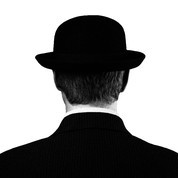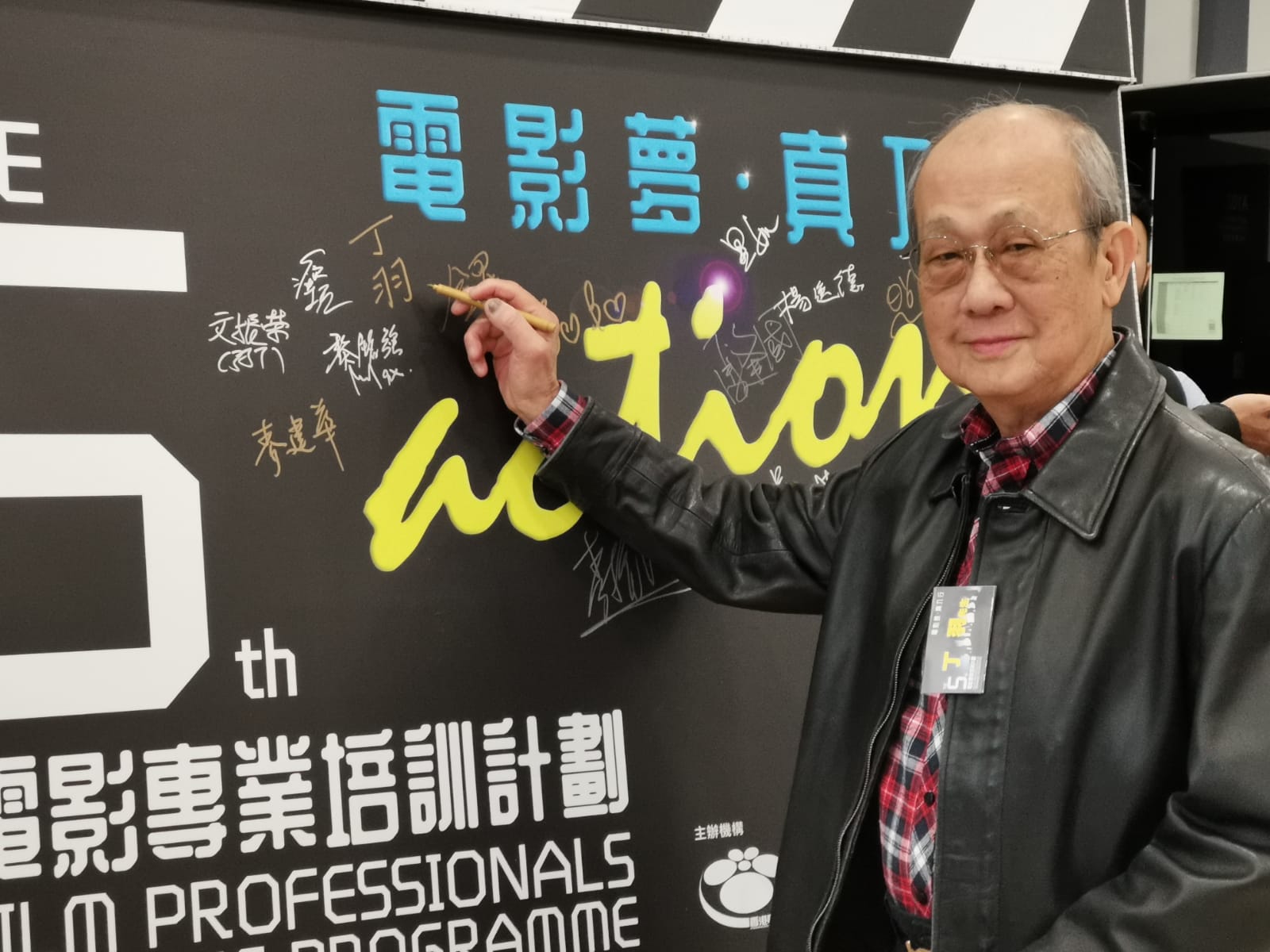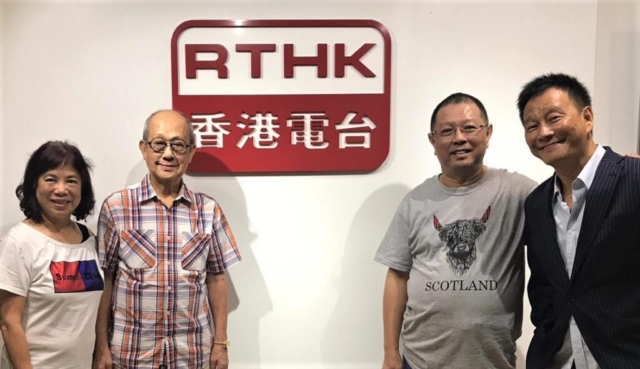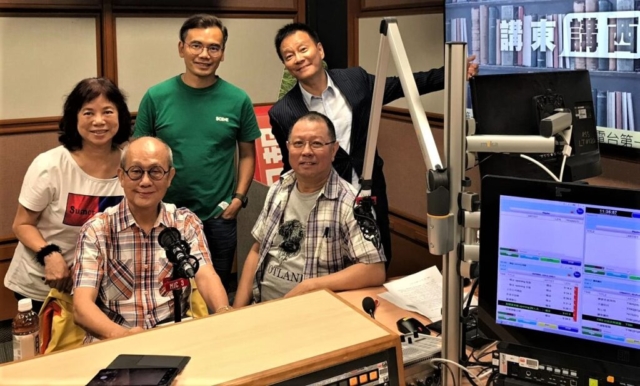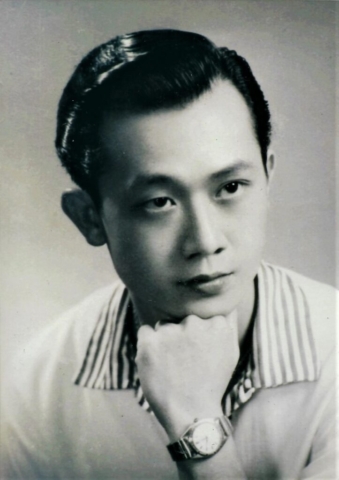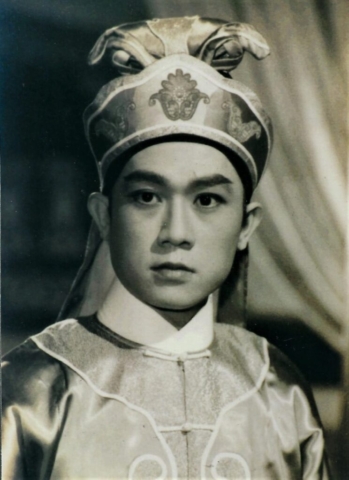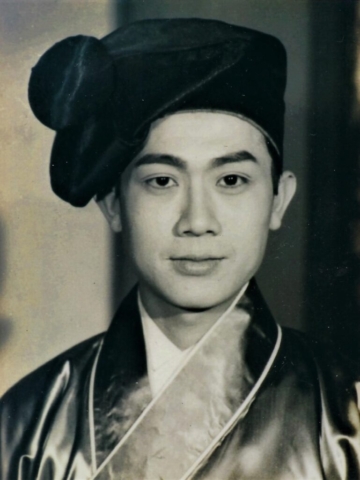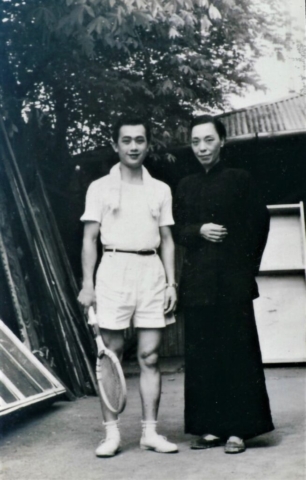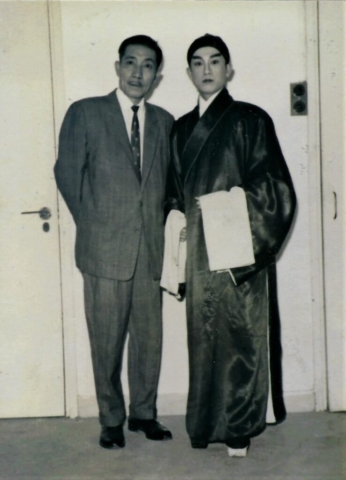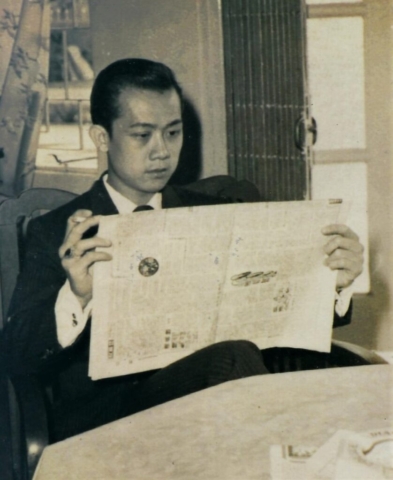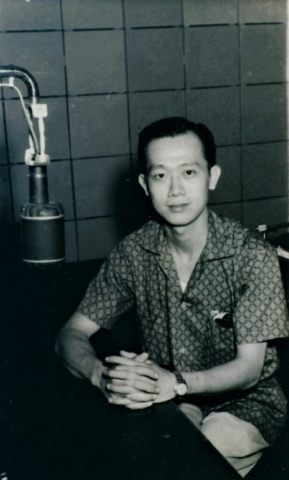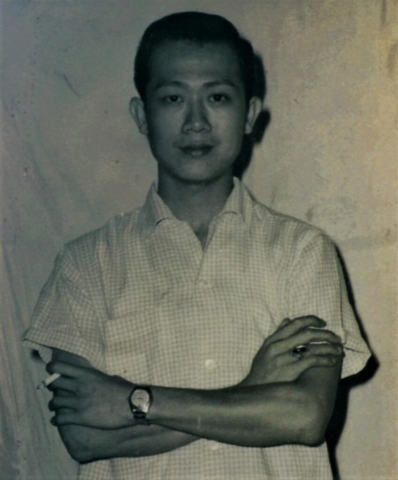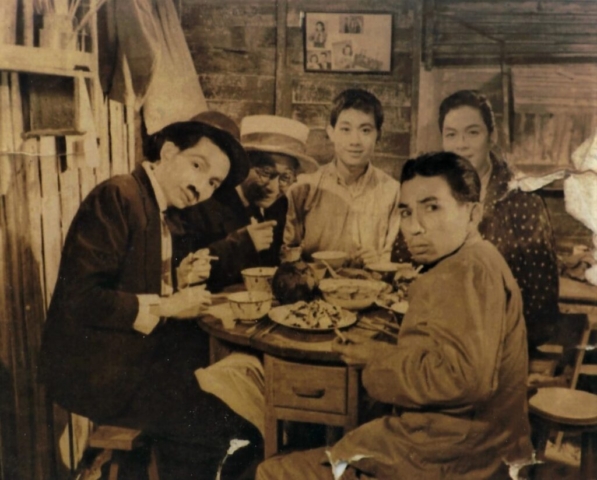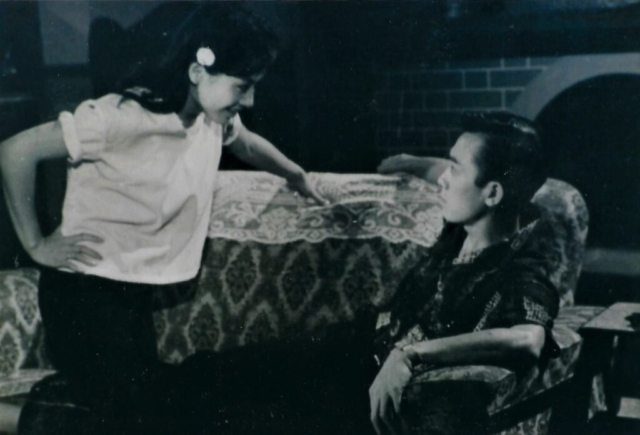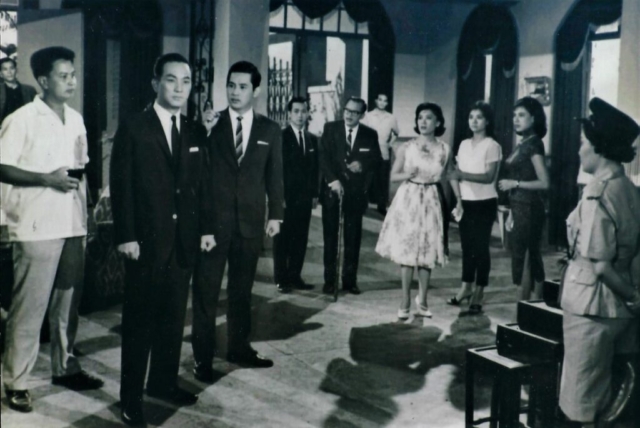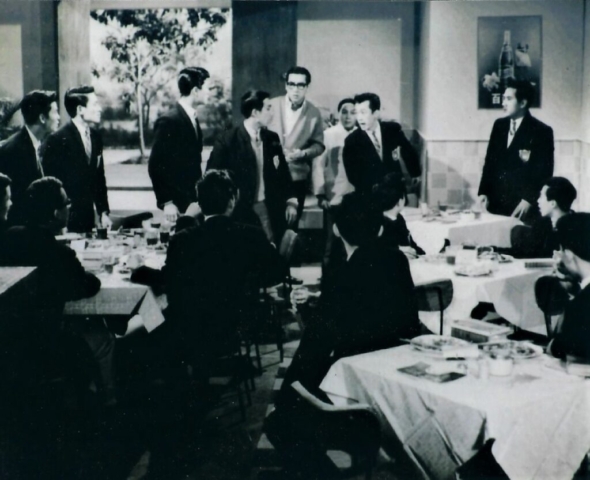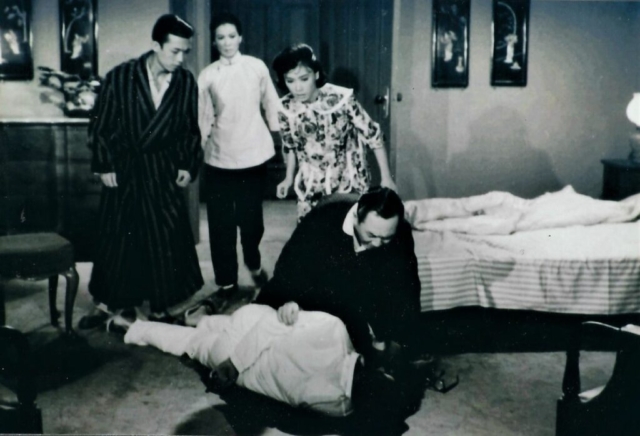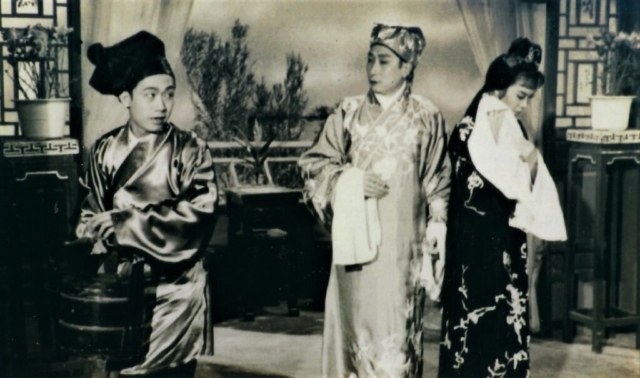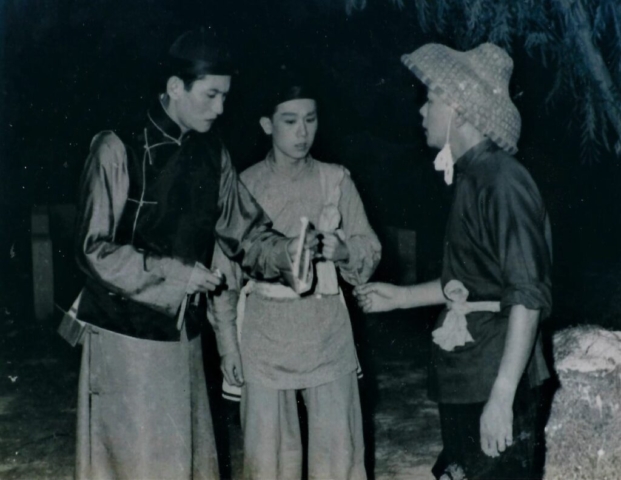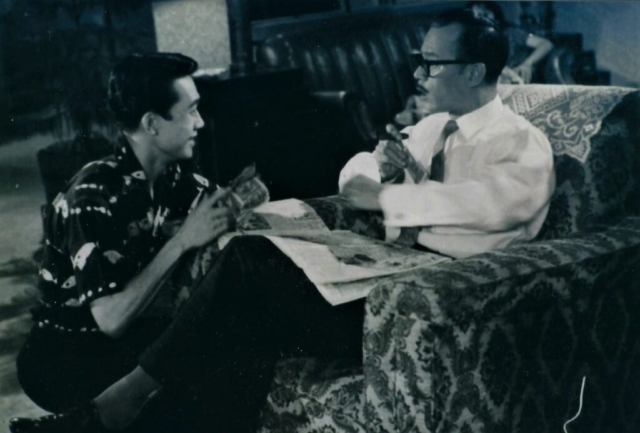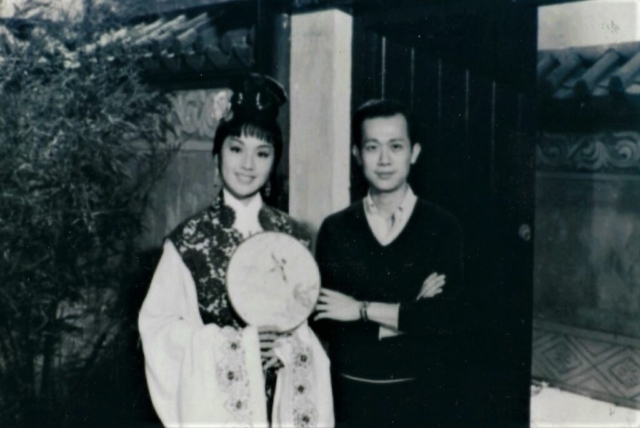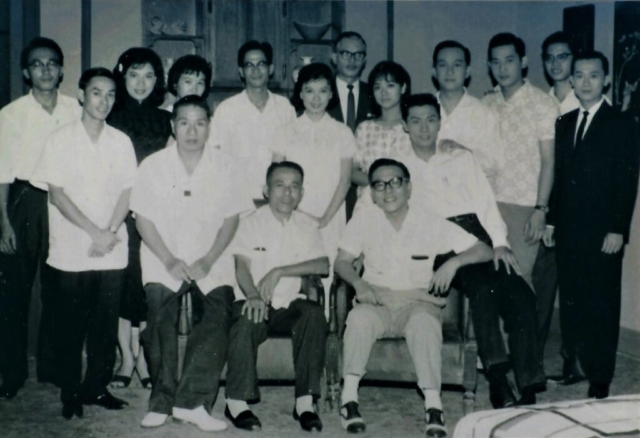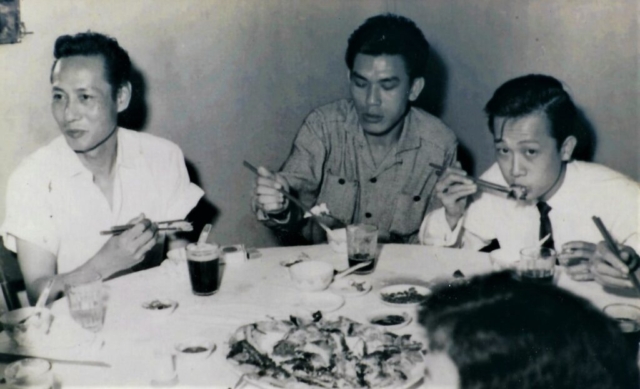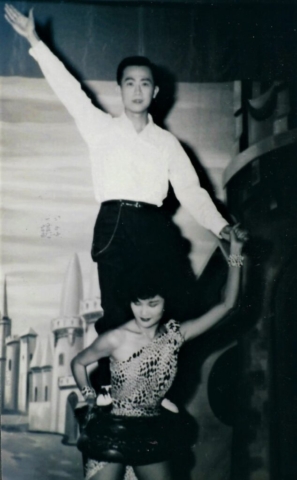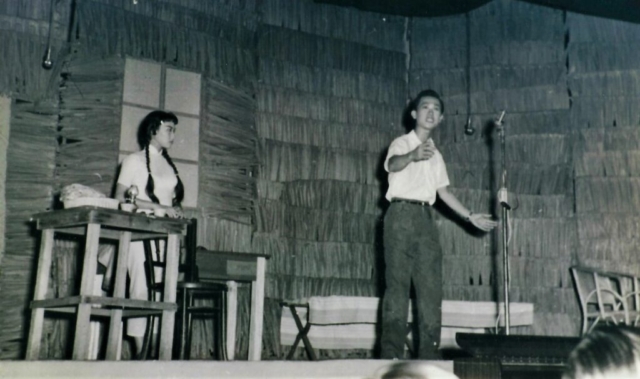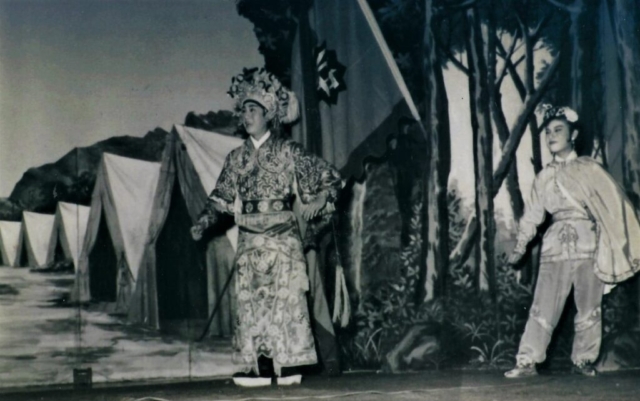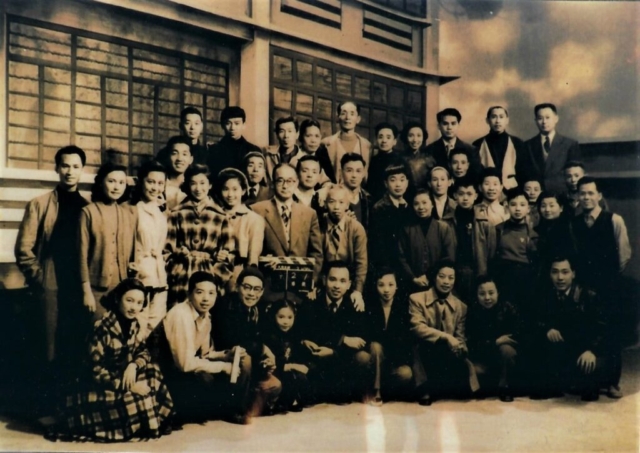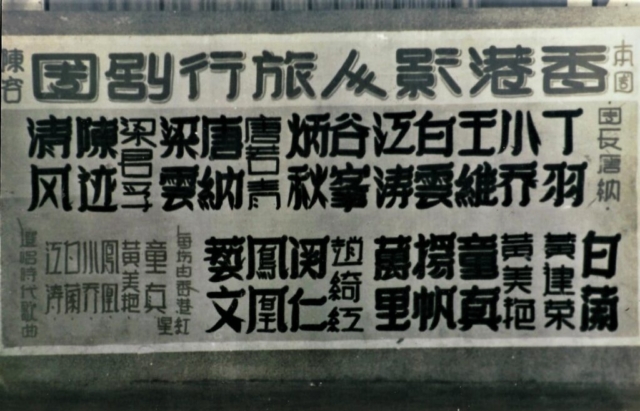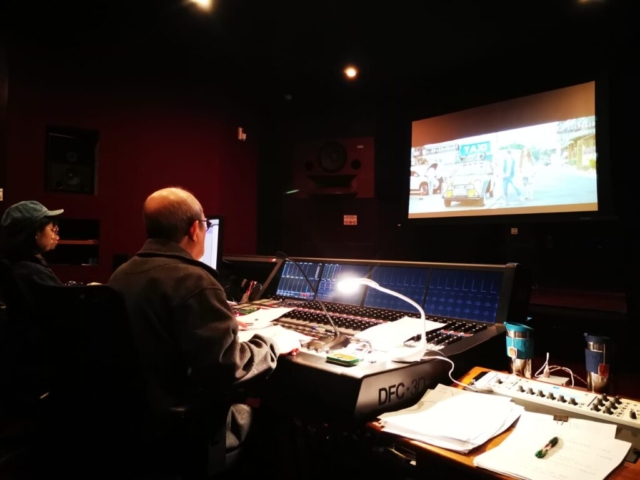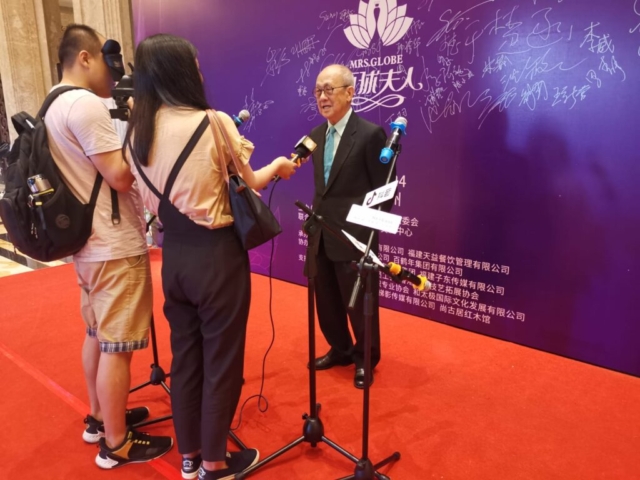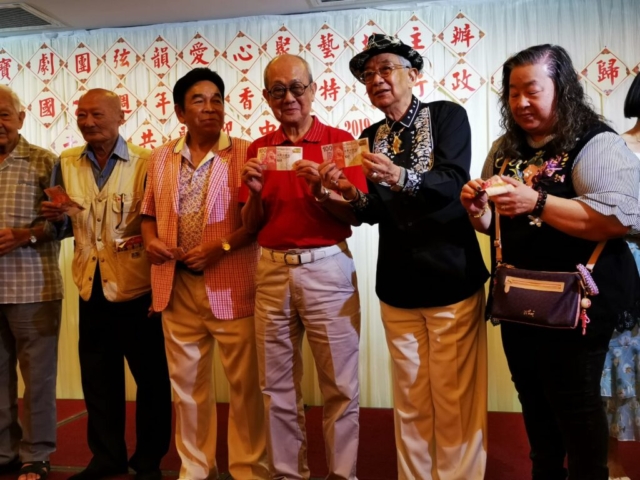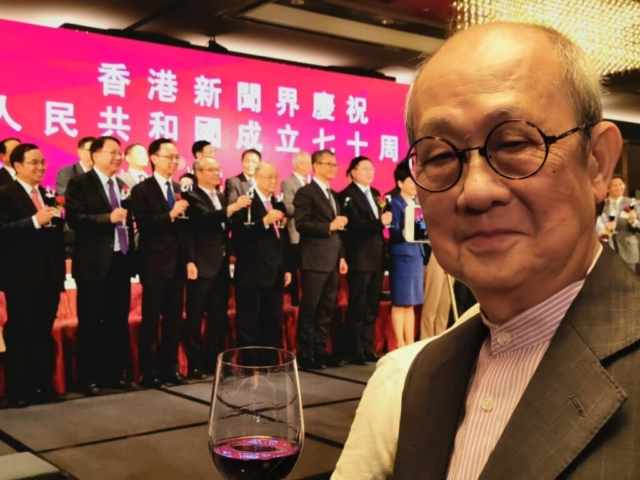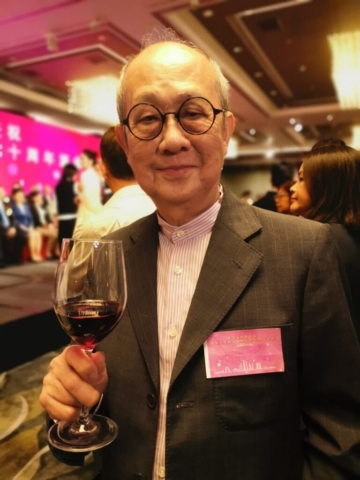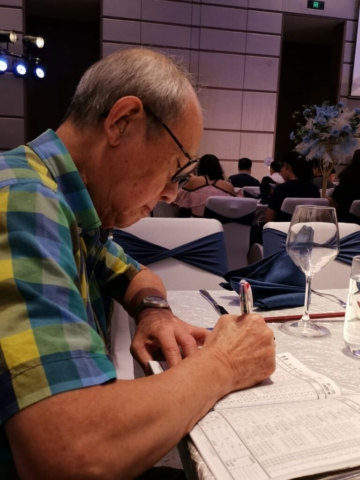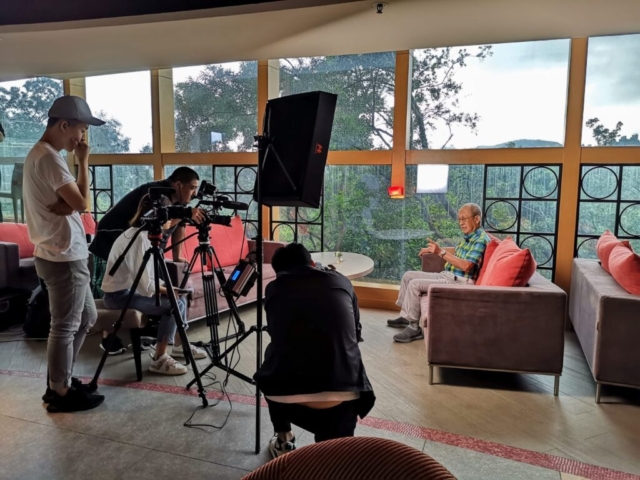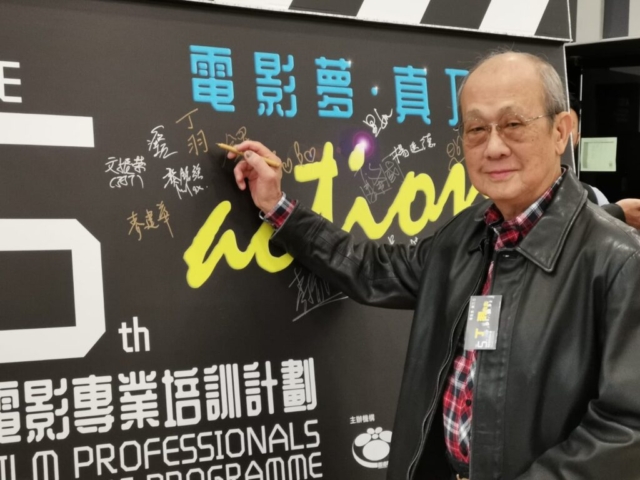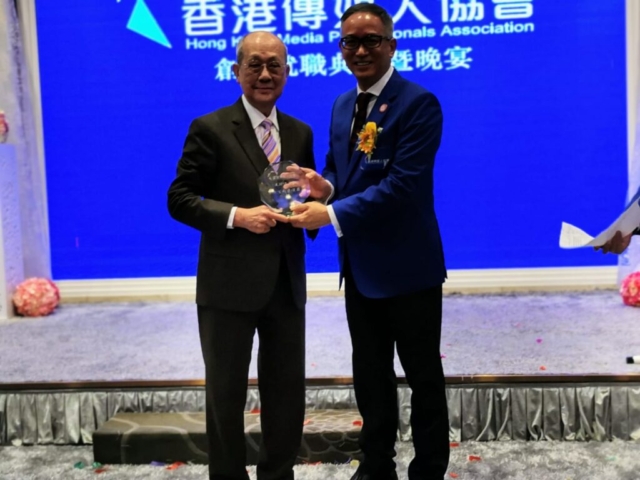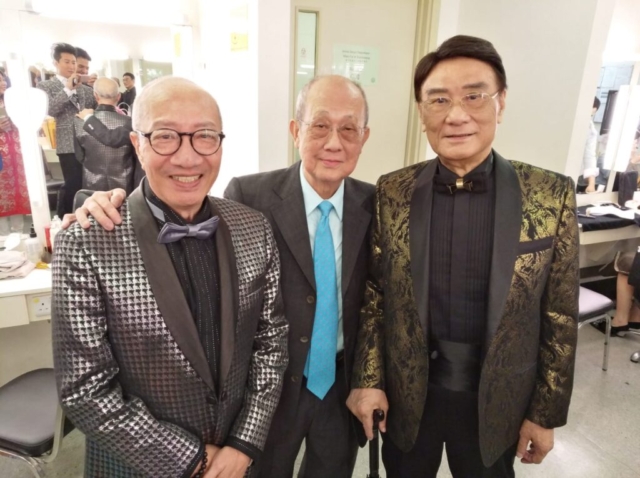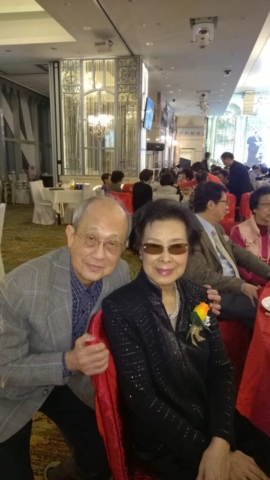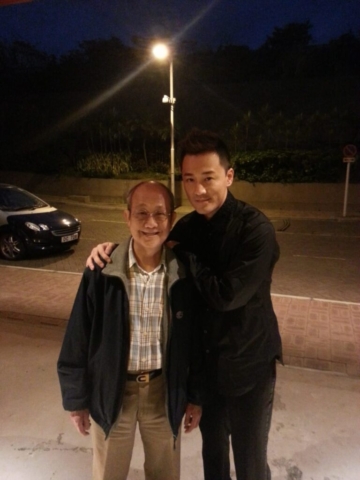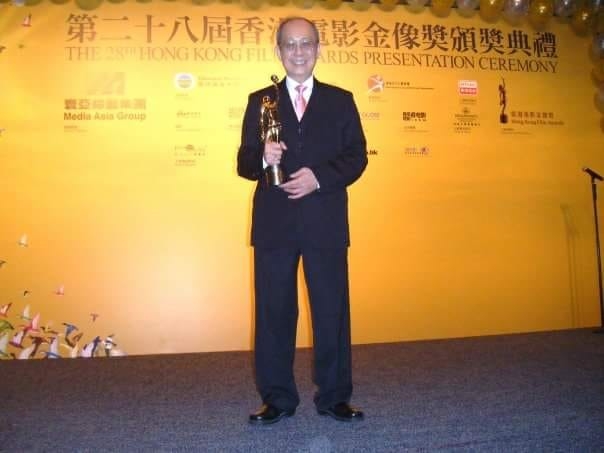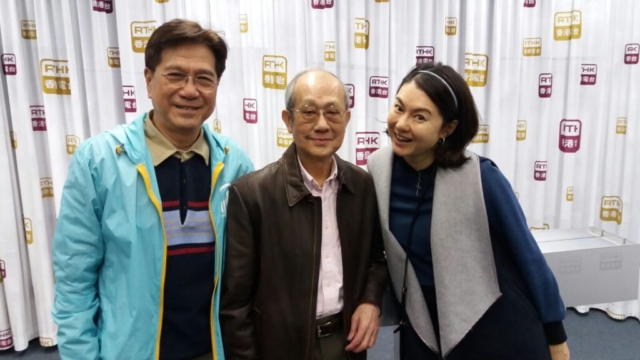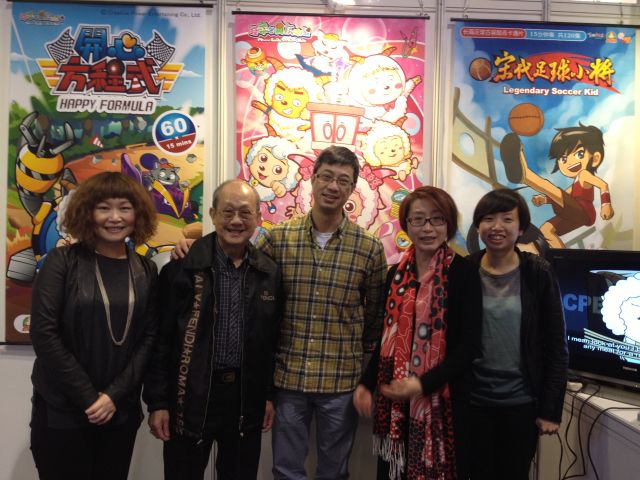17-10-19
One of the acclaimed contemporary composers is Arvo Pärt, from Estonia. He delights us with music played by a wide range of instruments. He however said, “The human voice is the most perfect instrument of all.” Words mean more than facial expressions but it takes a human voice to infuse words with greater power. I would like to use this article to make a salute to the most respectable voice dubbing master in Hong Kong Mr. Ting Yu(丁羽) who was born in September 1934 and is still fit and cheerful.
Ting told me, “I was born in Hong Kong and lived on Prince Edward Road. My father used to be a high-level official of the customs department. He quitted government job and set up 4 hotels. His 10 kids fell asleep every night with a full belly and happy heart. Wing Fong(榮芳) Coffee Shop in Kowloon City was close to Prince Edward Road and it was a hang around place of the movie stars. There, I came to know a director Wu Pang(胡鵬) and scriptwriter Wong Fung(王風). At eighteen, I finished my high school and got no job in the backward 1950s of Hong Kong. Wu and Wong offered me the role of a eunuch in a film. As I was considered educated in those days, I worked my way up to become a production assistant and later assistant director apart from acting.”
“In the 60s, I worked in Shaw Brothers Studio and voice dubbing for films was my specialty. I was approached by Hong Kong Television Broadcasts Limited(TVB) around 1967 and they asked me to be their first Dubbing Department manager. A married man wanted stability and such stability could be traded off against my dream to be a film director. As a result, I have been enjoying my dubbing and ‘subbing’ business in a dark room from the 60s until now for over 50 years. I said ‘subbing’ because in a foreign motion picture, the actor did not speak Chinese and so I ‘acted’ for him vocally in the film.”
A successful man always feels changes and turns them as an opportunity. After working in TVB for some years, Ting finally established his own voice dubbing company in 1973 because the 1970s showed signs of upsurge in films locally made. The pleasure of a peak is when Hong Kong produced more than 300 films a year in the 90s.
Ting explained, “There were 3 causes of the economic boom of dubbing business. Chinese films were made either in the national language of Mandarin or local dialect of Cantonese used in Hong Kong. To satisfy the different market needs of the Chinese in Asia, we had to translate and dub films into either language. Also, the live recording equipment and technology of the old days were not good and any ‘Cut’ shouted by the director would stop all and the shot had to be re-done. The ‘smartest’ way was to shoot a film without voice live recording (called MOS, or Omitting Sound Recording) and to dub the film afterwards. Let me give you an example: 2 days of shooting with sound live recording could be reduced to only 6 to 7 hours when they had adopted MOS.”
“Lastly, popularity made some film stars as busy as a bee. They got no time to practise the dialogue well during shooting. They therefore used an artist of similar voice quality to dub for them at the post-production stage of the film. Jackie Chan(成龍) was one of them.”
I was in an inquisitive mood, “Master Ting, what are the different generations of dubbing artists in Hong Kong?” Ting responded, “There are basically 3 generations. In the 50s to 60s, some stars came from the North China and could not speak Cantonese. So, it was devised that another artist would stand by at the shooting location. She read the lines of the film script aloud while the star was acting and ‘lip imitating’ her, so as to satisfy the need for live recording at that time. This is the crudest form of dubbing.”
“In the 70s & 80s, we got only analog editing technology but no digital signals. In order to edit the soundtrack of a motion picture conveniently, every dubbing session was about one minute without any interruption. The dubbing artist had to memorize the lines of a script for that one minute. To make it worse, the artists in the 70s were unable to hear their own recording simultaneously with the dubbing due to technical limitations. The artists could not afford any mistake for the one minute.”
“Now, we live in a digital age. All have become too easy for a dubbing artist. He can stop and dub it again at any second. The remaining challenge is only his voice acting skills. Lack of emotion or style may be a problem for many young dubbing artists”
I asked Ting for his past 60 years contributions to the dubbing world, what he could remember most. Ting smiled, “In the early years when we dubbed foreign films, like the Japanese ones, there was often no script provided to us. The written instructions given to us were very simple and they just told us what a scene was roughly all about. So, we just improvised the dialogues ourselves. We really had fun since we could be as creative as we wanted to be. However, we got into big trouble when the film was a detective story and every line of conversation might imply a hint solving the criminal case.”
We cannot recognize a dubbing artist’s face. It is only after hearing his or her voice that we realize who they are. Master Ting Yu is one of such unsung heroes. They were the hidden daisies among the roses and the stars which broke at the dawn in the glorious evolutions of Hong Kong Hollywood since 1940s.
This article can also be found at the following sites:



